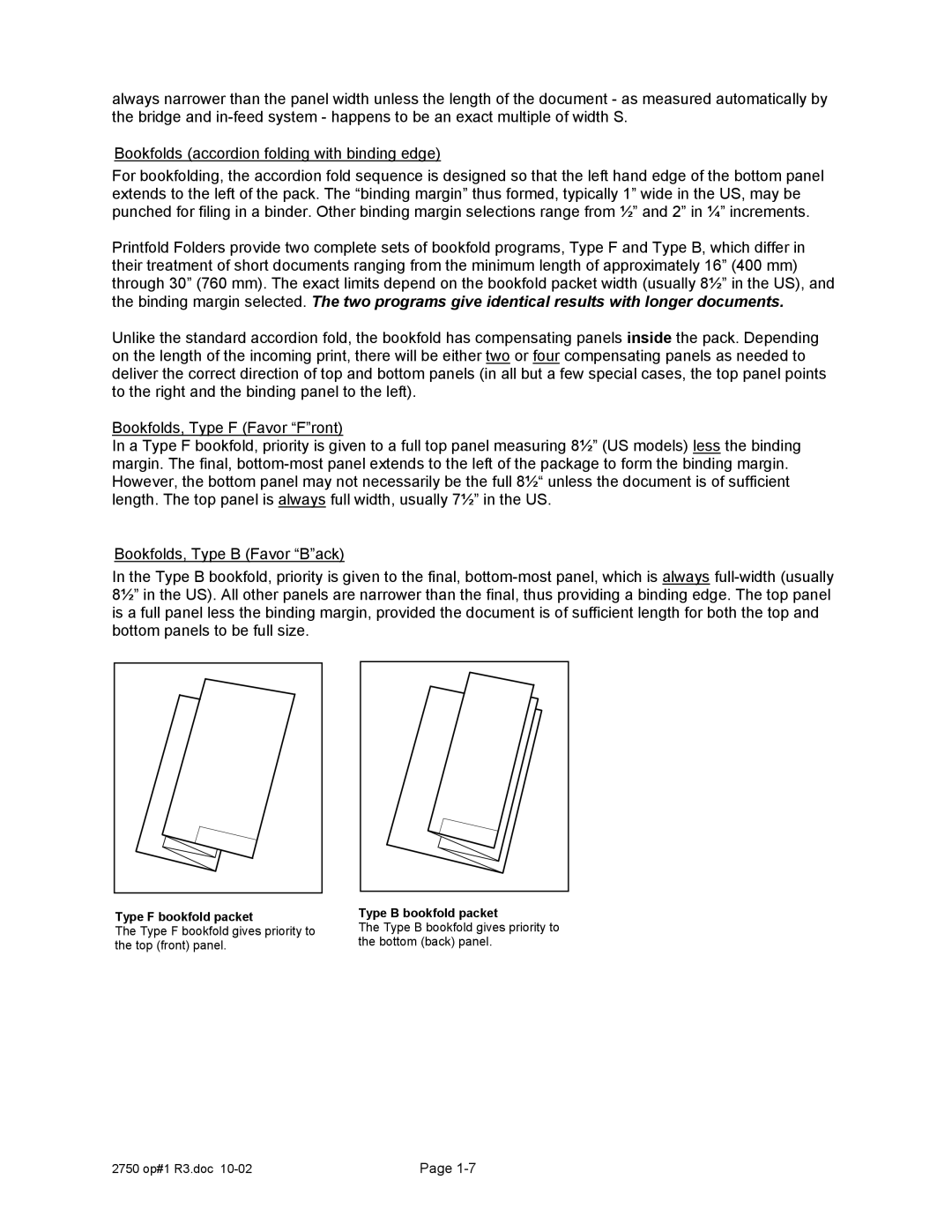
always narrower than the panel width unless the length of the document - as measured automatically by the bridge and
Bookfolds (accordion folding with binding edge)
For bookfolding, the accordion fold sequence is designed so that the left hand edge of the bottom panel extends to the left of the pack. The “binding margin” thus formed, typically 1” wide in the US, may be punched for filing in a binder. Other binding margin selections range from ½” and 2” in ¼” increments.
Printfold Folders provide two complete sets of bookfold programs, Type F and Type B, which differ in their treatment of short documents ranging from the minimum length of approximately 16” (400 mm) through 30” (760 mm). The exact limits depend on the bookfold packet width (usually 8½” in the US), and the binding margin selected. The two programs give identical results with longer documents.
Unlike the standard accordion fold, the bookfold has compensating panels inside the pack. Depending on the length of the incoming print, there will be either two or four compensating panels as needed to deliver the correct direction of top and bottom panels (in all but a few special cases, the top panel points to the right and the binding panel to the left).
Bookfolds, Type F (Favor “F”ront)
In a Type F bookfold, priority is given to a full top panel measuring 8½” (US models) less the binding margin. The final,
Bookfolds, Type B (Favor “B”ack)
In the Type B bookfold, priority is given to the final,
Type F bookfold packet
The Type F bookfold gives priority to the top (front) panel.
Type B bookfold packet
The Type B bookfold gives priority to the bottom (back) panel.
2750 op#1 R3.doc | Page |
